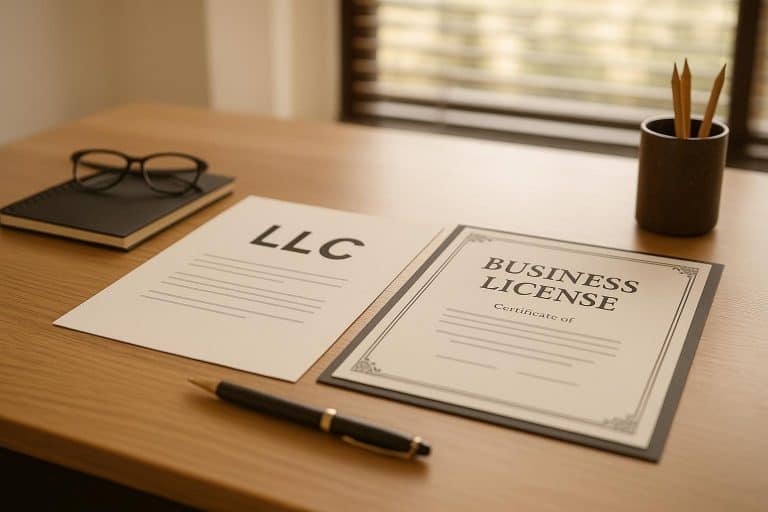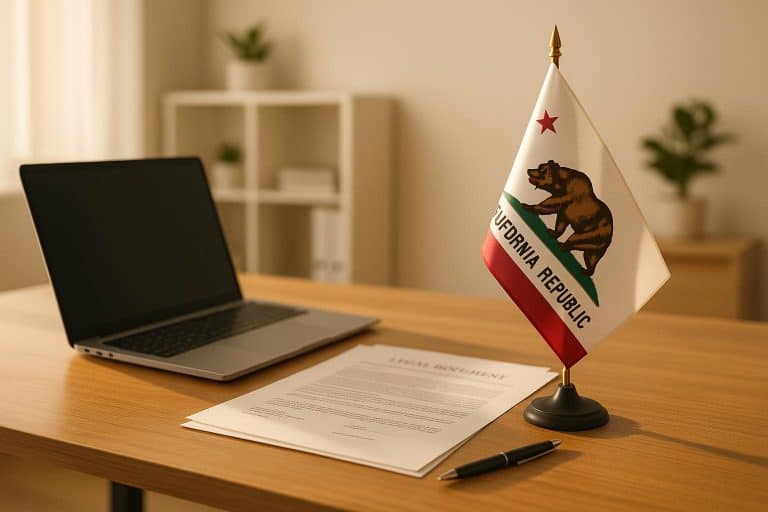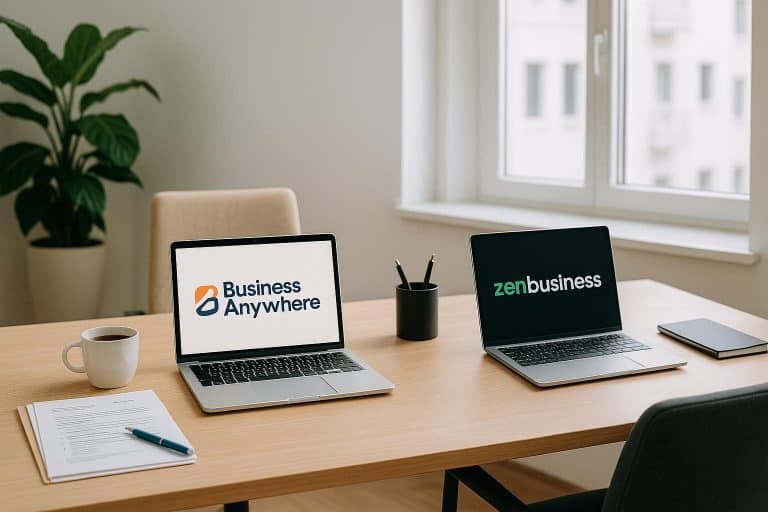Do you know the steps to prepare a Certificate of Formation for an LLC without unnecessary mistakes leading to rejection? It’s a document required by law in the United States to establish a new company.
Most entrepreneurs file company formation documents for a limited liability company with the state government. The process attracts a fee and often contains essential information about an organization.
Are you a novice seeking information about ways to prepare a Certificate of Formation for an LLC? Join us as we discuss the document in-depth and methods for filing success. Let’s get started.
What is a Certificate of Formation for an LLC?
A certificate of formation is the documentation law required in the US to establish a new LLC. It’s the birth certificate for your company formation online, which is necessary for every state.
The certificate of formation for a limited liability company should contain your business name and designated registered agent information. It should outline the organization’s purpose and longevity of your LLC. It’s often signed and dated by authorized personnel on behalf of the establishment.
Preparing a Certificate of Formation for an LLC
Some states in the US don’t have online company formation filing, but you can prepare a certificate of formation for your LLC by fax or mail. It has a fee, so check your jurisdiction website to learn more about the price.
Processing usually takes 1-3 weeks, but you can fastback approval by paying extra with a check or credit card.
To avoid rejection, consider adding your money order or credit card information when filing your request. Remember that fees vary and are subject to change based on your priority status. Lastly, standard services are usually more economical than expedited services, so select based on your budget.
How to Complete and File Your Certificate of Formation
Naming your Limited Liability Company and registered agent address helps you incorporate your business online when preparing a certificate of formation. You want to provide a dissolution date and business purpose to ensure quick approval. Let’s dig into the details:
1. Name Your LLC
Establishing a limited liability company has various benefits, but a name for it is crucial. Choose a befitting identity and submit the information as it should appear in the state records.
Conduct a trademark search for the legal business name before selection. Ensure your unique combination includes the designation “LLC,” abbreviation “LLC,” or words like “Limited Liability Company.”
2. Registered Agent Address
Every state in the US has an agent for the service of process and requires companies to present a registered agent by law. The professional receives the corporation’s essential tax and legal documents and passes them to the appropriate person.
After company formation registration, your registered agent should have a name, physical business address and meet other state requirements.
Enter the individual’s information, but avoid providing a PO Box address, which might lead to rejection. Many entrepreneurs scale businesses using registered agent service providers to ensure document safety and avoid tampering.
3. Dissolution Date
Your next step is defining whether or not your LLC will end operations on a particular date. Entrepreneurs usually have two options when choosing an LLC’s dissolution date. They include:
General Dissolution Date: This option is ideal if you prefer your limited liability company to be open-ended. It means the business has no set closure date, so consider specifying the duration as “perpetual.”
Specific Dissolution Date: Consider this option if the LLC has a particular date to shut down operations. Provide this information when filing your certificate of formation.
Most entrepreneurs form a company and handle dissolutions in the operating agreement, which lets them change the data when necessary.
4. Business Purpose
A business purpose outlines why you established the limited liability company and what makes it unique. Besides, this section explains why you incorporated the organization and the services it provides.
Remember, it’s crucial to be specific when providing necessary information for this segment. Lastly, it helps your market research.
5. Incorporator
An incorporator is a professional or company organizing and filing the Certificate of Formation and Articles of Incorporation. The process usually goes through the Secretary of State for online registration companies.
Most jurisdictions require the incorporator’s address, signature, and name in this section. The professional could be your lawyer or anyone experienced in filing company formation or Articles of Incorporation paperwork for remunerations.
6. Filing
When sending your Certificate of Formation documents to the secretary of state, you have two options: mail or fax. Remember to include a cover sheet along with all necessary documents. Besides, it could outline your company name, phone number, address, and email.
By mail: Consider paying via credit card or check and add extra fees for fast processing if necessary.
By fax: Confirm the processing schedule with your state on the official website or call the appropriate authorities.
Wrapping up
Prepare a Certificate of Formation for an LLC, and you will receive a stamped copy of the document with a receipt after processing. You might receive the information via UPS/FedEx or First Class Mail if included in your shipping details.
After receiving approval from the authorities, your establishment can begin operations. While the process is not complex, beginners must follow the outlined steps to succeed.
Consider filing as soon as possible to ensure quick processing and timely delivery. Lastly, expedited processing services might be your best option for reliable and faster processing.








